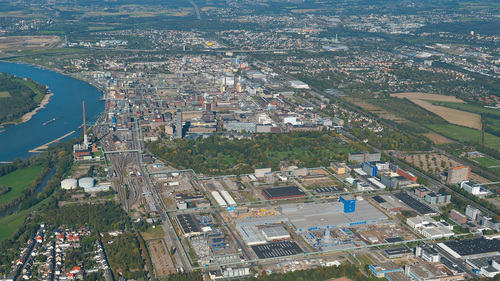Chemical recycling of polycarbonates reaches a major milestone, Covestro pilot plant to be built in Leverkusen, Germany
Covestro has developed an innovative process for recycling polycarbonate, i.e. polychain plastics. In this process, plastics are converted back into their monomers, a precursor of plastics, so that they can be fed back into the production process as alternative raw materials. At Covestro in Leverkusen, the technical implementation of chemical recycling is now beginning on a pilot scale. On the way to industrial scale, the process is still being optimized and is undergoing further development stages.
"As a manufacturer of plastics such as polycarbonate, we naturally have a responsibility in dealing with these important materials, including at the end of their product life. Our advantage is: we know how our products are designed and can therefore conduct targeted research into recycling solutions," says Dr. Thorsten Dreier, Covestro's Chief Technology Officer. "The chemical recycling of polycarbonate is another example with which our colleagues in development show that closed cycles are possible in the future. We need to use end-of-life plastics as a resource and reuse them as alternative raw materials to close the loop."
The return of plastics through recycling replaces primary fossil raw materials in production. Comprehensive recycling thus contributes to climate neutrality and the protection of natural resources and the environment. Mechanical recycling of polycarbonate is already an important component of Covestro's recycling strategy. The mechanical recycling process is used whenever waste streams are sufficiently pure and the recycled polycarbonate meets the requirements profile of the future application.
Chemical recycling works in a complementary way to mechanical recycling - it converts plastic building blocks back into monomers, i.e. their individual building blocks. These can be separated and serve as raw materials for future plastic. Chemical recycling can therefore make larger waste streams that are unsuitable for mechanical processes in particular accessible for recycling; it allows the production of plastics that meet the highest quality requirements. Covestro is therefore actively developing chemical recycling. The newly developed process makes it possible to recycle polycarbonates and reuse the recyclate for high-performance applications such as car headlights.
Chemolysis can directly close the polycarbonate cycle
The newly developed process, which was driven by an international team, is a specific chemolysis process adapted to polycarbonate. "Pre-sorted waste streams containing a product content of more than 50 percent polycarbonate can be recycled this way. This has been successfully demonstrated with various polycarbonate-containing plastic waste streams," explains Markus Dugal, Head of Process Technology at Covestro. "With the help of this chemolysis, the cycle can be closed to a direct precursor of polycarbonate. This makes the recycling process very sustainable."
Direct use of recycled product as raw material possible
The recycled product, a precursor of polycarbonate, can be mass-balanced and reused as a raw material for the production of polycarbonate without further processing. "Such high-quality recycled raw materials are needed for applications that require top quality. These include, for example, applications in the automotive sector with special requirements in terms of safety, optical transparency or aesthetics, and products in our everyday lives such as consumer electronics," says Lily Wang, Head of the Engineering Plastics Business Entity.
Millions of euros will be invested
Following successful development in the laboratory, the next stage of development, the technical implementation of a continuous process, has already started. A pilot plant, which is currently in the planning stage, will be used to gather the experience needed for further expansion to industrial scale. Millions of euros will be invested in this over the next few years. The pilot plant will be built in Leverkusen, Germany.
At the same time, Covestro is driving forward further processes for innovative recycling of polycarbonate in its research laboratories. These include chemolytic alternatives, recycling with enzymes that break down the plastic, and smart pyrolysis. Promising alternatives can also be tested with the pilot plant.
Plastics are key to sustainable growth and a green future. To ensure that plastic products do not become waste at the end of their life, they must be reused as alternative raw materials. Innovative recycling is one of the four fields Covestro is actively driving forward on the road to a circular economy. Covestro is therefore stepping up its research into recycling methods, with an open approach to technology, and promoting innovative approaches such as chemical recycling.
Categories
Investments
2023-06-01
at Chempark Leverkusen Currenta (DE)Companies
Latest news
Hycamite’s technology to decarbonize shipping awarded AiP by industry leader DNV
Kokkola Industrial Park →Hycamite’s proprietary Thermo-Catalytic Decomposition (TCD) technology offers a new approach to producing clean hydrogen by breaking down methane, the primary component of liquefied natural gas (LN...
Clariant catalysts will power the Ecoplanta: Europe's first waste-to-methanol plant
Chemmed Cluster Tarragona →Repsol is building Europe’s first plant to produce renewable methanol from urban waste The facility will use Enerkem gasification technology to produce 240 KTA of methanol Clariant will supply cata...
Lilly plans to build a new $3 billion facility to boost oral medicine manufacturing capacity in Europe for patients worldwide
Netherlands site will bring 500 manufacturing and 1,500 construction jobs while further strengthening Lilly's global supply chain
Ports of Duisburg and Rotterdam advance energy transition together
Port of Rotterdam →With this LoI, the two major European logistics hubs reinforce their goal of jointly developing sustainable transport corridors via waterways as well as future-oriented initiatives for the energy t...


